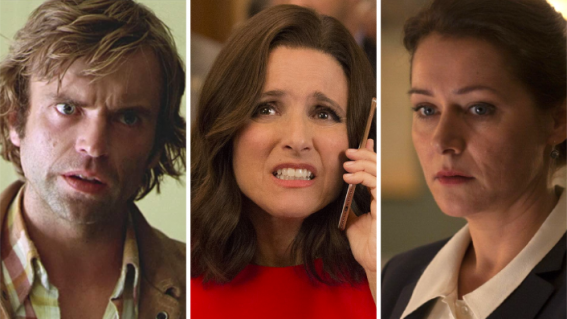Streaming services required to have content warnings under law change
On-demand content will soon need a classification to play in NZ

Consistent standards for video-on demand will bring the likes of Netflix in line with film and DVD classifications.
Internal Affairs Minister Tracey Martin has announced that Commercial Video on-Demand (CVoD) providers, such as Netflix and Lightbox, will need to show the same classifications and consumer warnings as seen on films and DVDs. The Classification Act will be amended to require CVoD content to have a classification before playing in New Zealand.
Commenting on the changes, Chief Censor David Shanks says “New Zealanders are entitled to the information they need in order to make educated decisions about the media content they, and their families, consume. This should be considered a basic right.”
Martin’s media release announcing the changes explains that CVoD providers will be able to self-classify content using the Rating Tool being developed by the Chief Censor, or their own systems accredited by the Classification Office. The Office will approve and enforce the classifications, with reviews of decisions made by the Film and Literature Board of Review, as is the case for movies and DVDs.
“We’ve had a voluntary regime for classification for streaming services, which means that ratings and consumer warnings can be inconsistent or missing,” the Minister says. “The worst example of this is what happened around the first season of 13 Reasons Why when there were no warnings around sexual violence and suicide for that show.”
“The changes will standardise classifications for video-on demand and bring them in line with films and DVDs so that families and young people know what they’re about to see when they sit down to a show or film.”
“This is only one piece of the overall media reform we need, but it’s an important step in helping to manage unnecessary harm to young and vulnerable people and allowing them to make informed choices.”
In a LinkedIn article about the changes, Chief Censor David Shanks says they mean “New Zealanders will get better and more consistent information to make informed decisions about what they are watching”.
“Right now New Zealanders have a pretty tough time working out whether the movie they want to watch is suitable for their kids or has a scene that could be hard or even harmful for them to watch.”
Streaming services are not currently covered by the law, whether based in New Zealand or internationally. Spark’s Lightbox infamously fell out with former Chief Censor Andrew Jack over the issue, when they stopped submitting material for formal classification.
This was after a Culture and Heritage Ministry finding that internet television services sat outside the existing regulatory regimes, and Jack eventually took issue with what he called inaccurate and inadequate content warnings on Lightbox.
Content warnings on overseas services further complicate the picture. “Ratings and consumer warnings currently provided by various streaming platforms in NZ, are inconsistent and confusing,” says Shanks “and often don’t have advice on topics like suicide and sexual violence – content that New Zealanders have told us they want to be warned about.”
This aligns with findings in the Cinema Census carried out by Flicks last year. While only 32% of respondents told us they check classifications, those that do explained that classification information helps to make informed choices about content that may trigger themselves or others.
Shanks describes the incoming classification system as “a low cost option which means kiwis won’t be penalised with delays or reduced service that would likely happen if we were to do all classifications in house. We would create the framework that the content is assessed against and do checks to ensure that companies are correctly following it.”
“It’s a simple and sensible step to ensure New Zealanders can get the information they need to understand, create and share content in a positive way, while safeguarding our tamariki and rangatahi from harm.”
These changes to The Classification Act are likely to be introduced to Parliament as an Amendment Bill in late November.





















